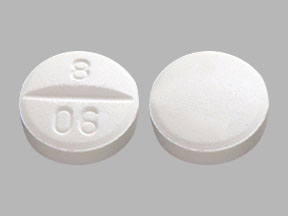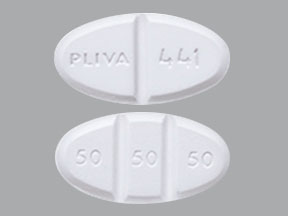Trazodone is an antidepressant medicine. It’s used to treat depression, anxiety, or a combination of depression and anxiety.
Trazodone works by increasing your levels of serotonin and noradrenaline so you feel better.
It can help if you’re having problems like low mood, not sleeping (insomnia) and poor concentration.
Trazodone comes as tablets, capsules and liquid that you swallow. It’s only available on prescription.
Key facts
- Doctors usually prescribe trazodone when other antidepressants have not worked or have caused side effects.
- It can take 1 to 2 weeks before trazodone starts to work, but it may be 4 to 6 weeks before you feel the full benefit.
- Trazodone can make you feel sleepy. If you take it once a day, it’s best to take it in the evening or before you go to bed.
- If you and your doctor decide to take you off trazodone, your doctor will usually recommend reducing your dose gradually to help prevent withdrawal side effects.
Who can and cannot take trazodone ?
Who can take trazodone
Most adults aged 18 years and over can take trazodone.
If you have diabetes, trazodone can make it more difficult to keep your blood sugar stable. Your doctor may advise that you monitor your blood sugar more often for the first few weeks of treatment with trazodone, and adjust your diabetes treatment if necessary.
Speak to your doctor if your blood sugar levels are causing you concern.
Who may not be able to take trazodone ?
Trazodone is not suitable for some people. To make sure it’s safe for you, check with your doctor before starting to take it if you:
- have ever had an allergic reaction to trazodone or any other medicine
- have ever had thoughts of self-harming or ending your life
- have recently had a heart attack or have heart, kidney or liver problems
- have epilepsy or are having electroconvulsive treatment – trazodone may increase your risk of having a seizure
- are pregnant, trying to get pregnant or breastfeeding
- have porphyria, a rare disorder
- have phaeochromocytoma, a condition that affects the adrenal glands
How and when to take trazodone ?
Always follow your doctor’s advice, and the instructions that come with your medicine.
Dosage and strength
Trazodone tablets come as 50mg, 100mg and 150mg strengths. Capsules come as 50mg and 100mg strengths. The liquid has either 10mg or 20mg of trazodone in every 1ml.
For depression, the usual dose is 150mg daily. But in some cases your doctor may start you on a lower dose of 100mg to reduce the chance of side effects.
For anxiety, the usual dose is 75mg daily.
Your dose may go up or down depending on how it affects you. Your doctor may prescribe up to 300mg a day for anxiety, or more for depression, if you need a stronger dose.
How to take it
Your doctor may advise you to take your dose of trazodone once a day. If you have a larger dose, your doctor may suggest that you split it and take it twice a day.
If your dose is 300mg a day or less, your doctor will probably tell you to take it as a single dose at bedtime. As trazodone can make you feel sleepy, taking it at bedtime may help if you’re having trouble sleeping.
Take trazodone after food to reduce the chances of feeling sick.
How long to take it for
If you have only had 1 episode of depression, you’ll need to take trazodone for at least 6 months after you feel better.
Stopping before that time can make depression come back.
If you have had depression more than once, your doctor may recommend carrying on with trazodone for longer.
If you forget to take it
If you forget to take a dose, take it as soon as you remember, unless it’s almost time for your next dose. In this case, skip the missed dose and take your next dose at the usual time.
Never take 2 doses to make up for a forgotten one.
If you often forget doses, it may help to set an alarm to remind you. You could also ask your pharmacist for advice on other ways to help you remember to take your medicines.
If you take too much
Taking too much trazodone can cause symptoms including:
- being sick
- feeling very sleepy
- being confused
- feeling dizzy or fainting
- problems with your heart or breathing
- a fit or seizure
The amount of trazodone that leads to an overdose varies from person to person.

